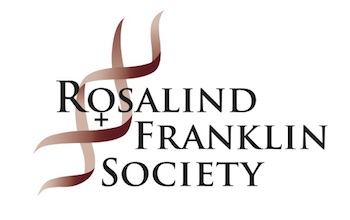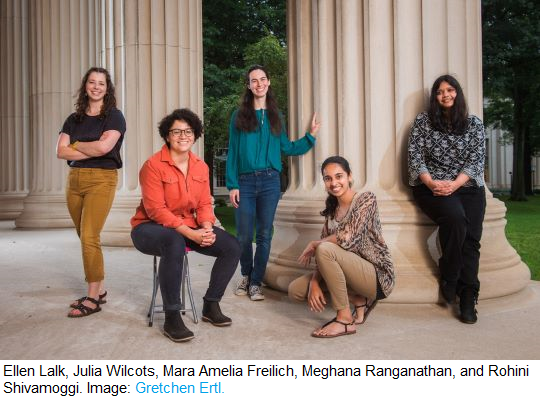Dear Colleagues,
I am pleased to include another issue of RFS Briefings with some timely and encouraging updates on women in science.
Our Women in Science Webinar was terrific! Dr. Katalin Karikó talked about her pioneering research in mRNA vaccine technology. The Hungarian-born biochemist’s discoveries provided scientists with the tools necessary to develop mRNA vaccines for COVID-19. If you missed it, you can watch it here.
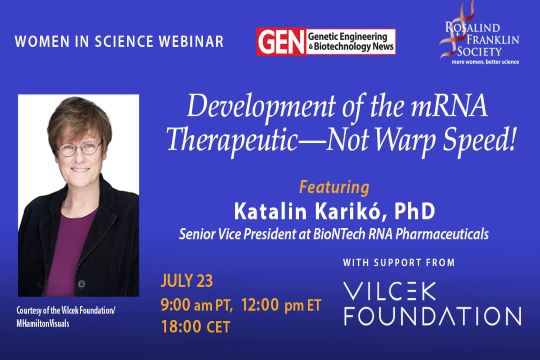
See below for more news about women in science
Please continue to share important news and opportunities with us so that we may share it with you, and others who are committed to supporting the careers of exceptional women in science.
Stay safe and sound,
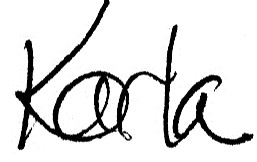
Karla Shepard Rubinger
Executive Director
Rosalind Franklin Society
www.rosalindfranklinsociety.org

The Genome Writers Guild (GWG) and Rosalind Franklin Society have joined forces again to recognize amazing scientists with the Rosalind Franklin Medal. We invited the nominations of women working in the fields of genome engineering and synthetic biology; researchers in the early stage of their career, including graduate students, post-docs and assistant professors. Nominees from all walks of genomics and nucleic acid research, including academia, industry, and government were considered.
Congratulations to Natalia Gomez-Ospina, M.D., Ph.D., Assistant Professor of Pediatrics; Genetics and Stem Cell Transplantation, Medical Genetics at Stanford Bio-X, for receiving The Rosalind Franklin Medal. This award unites GWG’s core objectives of facilitating genome writing conversation, collaboration, and exposure with the Rosalind Franklin Society’s goals of enabling more women to achieve higher recognition, visibility, appointments and success in industry, academia, or government. Read more.
Congratulations to the other finalists:
- Janice Chen, Co-founder & CTO at Mammoth Biosciences, San Francisco, California.
- Jennifer Hamilton, Jane Coffin Childs Postdoctoral Fellow, Doudna Laboratory, UC Berkeley.
- Pratiksha Thakore, Senior Scientist, Department of Cellular and Tissue Genomics at Genentech.
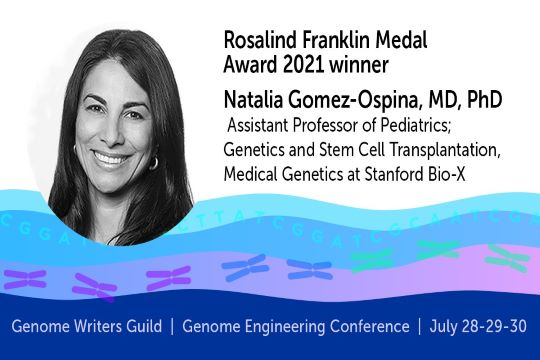
Do you know someone deserving of the 2022 Szent-Györgyi Prize for Progress in Cancer Research? This prestigious prize honors scientists whose seminal discovery or pioneering body of work has contributed to cancer prevention, diagnosis, or treatment. Read more.
Study highlights long road toward gender parity in the geosciences.
Women and people of color remain underrepresented along every step of the tenure track in every academic field in the United States. As a new MIT study shows, progress toward equitable representation for women in academia will require active, concerted, and sustained effort — and even then, change may be slow in coming. Read more.
President Biden has nominated bioengineer Laurie Locascio to lead the National Institute of Standards and Technology.
Locascio is poised to lead NIST during a potentially transformative period for the agency. The Biden administration has proposed to vastly expand its advanced manufacturing programs, with a focus on microelectronics and supply chain security. It has also proposed large boosts for the agency’s research programs, with an emphasis on quantum science, artificial intelligence, climate research, bioengineering, and advanced communications, among other areas. Read more.
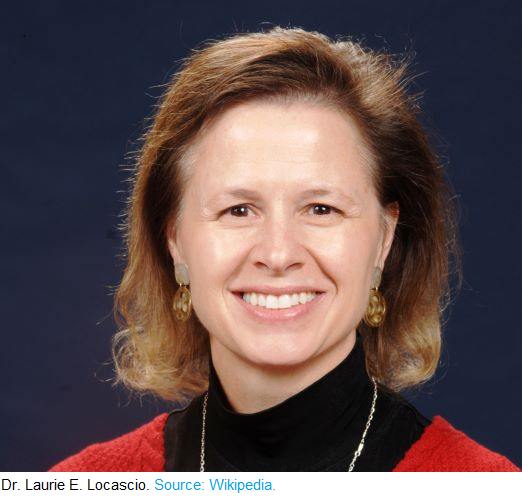
Mark Gordon Pictures grabs ‘The Code Breaker’ screen rights.
Mark Gordon Pictures acquired screen rights to “The Code Breaker,” based on Walter Isaacson’s “The Code Breaker: Jennifer Doudna, Gene Editing, and the Future of the Human Race.” The book was published March 9 by Simon & Schuster, and spent several weeks on the top of New York Times best sellers list. Read more. If you missed our recent interview with Dr Doudna, you can watch it here.
The parenting penalties faced by scientist mothers.
Mothers in science face systemic barriers that are real and universal—across the globe, in every field of research. It's time to start tearing down the maternal wall. A global survey found 34% of mothers in full-time science careers had left those positions after their first child. In the US, where family-leave policies are often sparse or absent, that proportion is as high as 43%. Read more.
Gap between number of men and women in science globally is slowly closing.
A study of the publications of almost 6 million researchers over 20 years suggests that men produce more papers than women, even after correcting for age. The data demonstrates that more women are beginning careers as publishing researchers. In chemistry, for every two women that started a publishing career in 2000, there were four men. Read more.
How a Novartis CTO uses engineering skills to help women in STEM.
A 2020 women’s leadership study from LeanIn.org and McKinsey & Co. found that American women held less than 40% of corporate management positions. Here’s how one MIT Sloan alumna has pushed back on those statistics and used what she’s learned along the way to help those behind her. Read more.
She's a NASA astronaut. She's an entrepreneur. How 2 moms partnered to make science fashion for all.
The astronaut Karen Nyberg and entrepreneur Jaya Iyer partnered over their shared mission to help promote STEAM education and to break down gender stereotypes in clothing. Last month, the Netflix series Motherhood in Focus debuted an episode interviewing Nyberg about balancing her work in space and motherhood on earth. Read more.
Building a shark science community for women of color.
Jasmin Graham, along with Amani Webber-Schultz, Carlee Jackson, and Jaida Elcock, launched Minorities in Shark Sciences, or MISS for short, last year on Juneteenth. Their goal: create a community for women of color interested in studying sharks. On this Short Wave's episode, host Maddie Sofia talks with Jasmin about starting MISS and how it's uplifting women of color through hands-on workshops and community building. Read more.
Scientists understood physics of climate change in the 1800s – thanks to a woman named Eunice Foote.
Long before the current political divide over climate change, and even before the U.S. Civil War (1861-1865), an American scientist named Eunice Foote documented the underlying cause of today’s climate change crisis. Read more.
Why women need male allies in the workplace – and why fighting everyday sexism enriches men too.
Research has shown that in the absence of male support, women have to shoulder the burden of battling routine workplace sexism such as misogynist humor and microaggressions on their own. This can lead to a sense of isolation, stress and exhaustion. But what difference can one un-sexist man make? Read more.
'Cool' insect photos in Leeds to inspire girls into science.
Extreme close-up pictures of insects showing their "phenomenal" designs are being shown as part of a push to get more girls into science. The exhibition, Dead Inspiring, opens at Leeds City Museum later in August. Curator Milo Phillips said: "We're using our collection to say look at this cool stuff which you could study." Read more.
Fewer citations for female authors of medical research.
Paula Chatterjee and Rachel Werner hope that their study will remind researchers to consider how they know about a paper, and help them to be more aware of the gender of the people whose work they cite. “I would hope it’s a conversation starter between men and women in academia to understand why those differences might be there,” she says. Read more.
Marianna Limas, Social Media Manager
Nilda Rivera, Partnership and Events Manager
|
